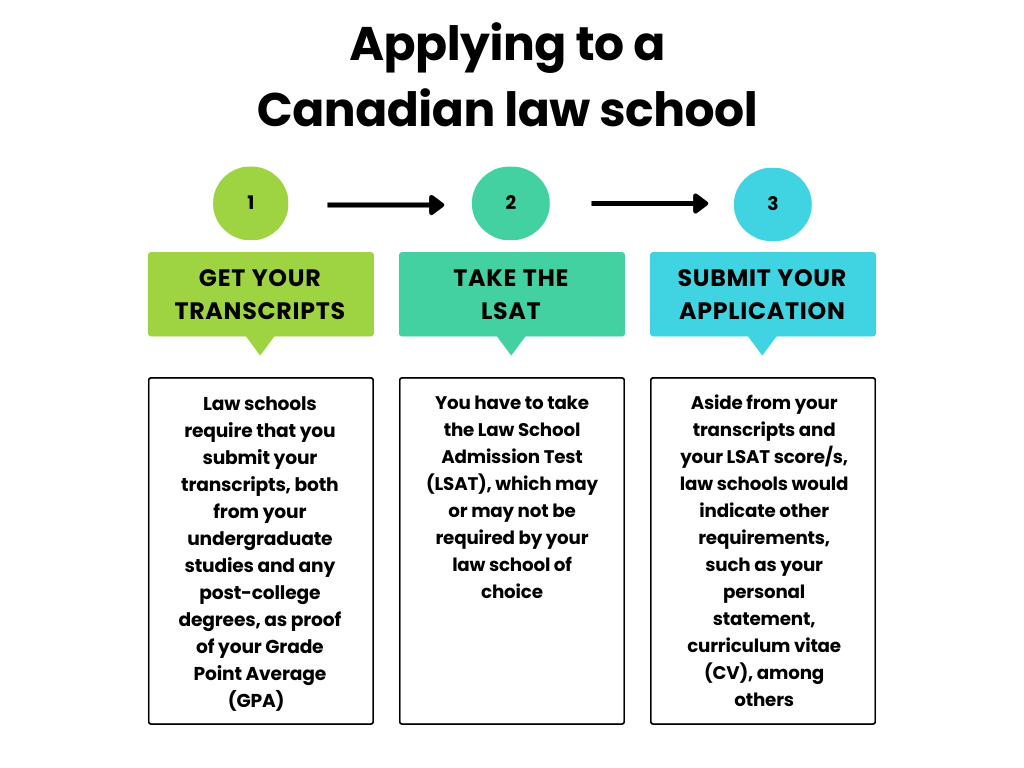
This article discusses how to become a real estate lawyer in Canada, including the educational requirements and other tips to help you in this process

Getting into real estate has become a recent development for new lawyers. Their focus is on Canadian laws on property and helping the different players in real estate market with their legal problems.
How does one become a real estate lawyer in Canada? Is real estate law a profitable career? This article answers these and more. This piece is especially for budding lawyers who also have an interest in real estate.
Real estate lawyers undergo the same rigorous but fulfilling path as any other lawyer in Canada. It starts with taking the required undergraduate degree and ends with the licensing process. Becoming a real estate lawyer can offer a slight detour into becoming an agent or broker, and we’ll get into that later.
Here are the steps on how to become a real estate lawyer in Canada:
Each of these steps will be discussed below. But first, watch this video to see what a Canadian real estate lawyer does:
As a preview of the actual cases or legal problems that you may handle as a real estate lawyer, head over to our Real Estate page.
Here's a closer look at how to become a real estate lawyer:
An undergraduate degree is one of the important requirements of Canadian law schools; without it, no law school will allow you to be admitted in their program. Also called your pre-law degree, most law schools would require at least three years of undergraduate studies, with four years of studies as their preferred choice.
One advantage when studying law in Canada, such as in other countries, is that there are no specific undergraduate degrees required. Although there are those who would prefer to study social sciences or finance-related degrees, this is also an opportunity for you to major in real estate before going to law school. Another option is to take up a degree related to property law which has a specialization on real estate.
To help you become a real estate lawyer someday, an example of undergraduate degree that you can choose from is the Bachelor of Commerce. Some universities offer this course with a concentration or majoring in real estate or real estate management.
The bottom line is to choose a major or a degree which you’ll enjoy studying in. Much like in law school, which you won’t survive unless you appreciate it, studying real estate must be top of mind even during your undergraduate studies.
Don’t get confused with the process that you would have to undergo to be a licensed agent or broker for real estate transactions in Canada. Since it’s also a regulated profession, the licensing process is governed by specific provincial laws (e.g., Real Estate and Business Brokers Act in Ontario).
These provincial licensing laws outline:
Canadian lawyers can also become real estate agents, which can expand the services they’re allowed to do. It makes them somewhat of a ‘complete package’ that buyers and sellers need in a real estate transaction.
If you also want to become an agent or broker, be wary of some of the issues of ethical and professional standards. In effect, you must now follow the codes and rules of professional conduct for both lawyers and real estate agents or brokers.
From the perspective of the buyer, here’s how a real estate transaction goes and where you’ll fit in the picture as a future real estate lawyer:
You can browse our Rankings page for the annual Special Reports which rank lawyers and firms in every practice area. Their stories will inspire you to become a good lawyer and learn how to serve their clients in the best possible way.
After having the required undergraduate degree, your next step is to apply to a law school and graduate. In Canada, you’ll have to take any of these degrees:
All these degrees will take up to three years, according to their curriculum and the required courses you must take.
To guide you in applying for a Canadian law school and eventually become a real estate lawyer, here’s the simplified stages that you must make:

Read our in-depth report on law schools in Canada to help you prepare for this life-changing decision.
When it comes to your LSAT, it’s important that you inquire with your law school if it’s mandatory for them or not. But even if it’s not, and you have a good LSAT score, it’s suggested to still submit it to them as additional consideration on your application.
There are a lot of extra-curricular activities that you can do while you’re in law school. Aside from concentrating on your academics, getting practical experience is also helpful if you want to become a real estate lawyer someday. Here are the various ways that you can think about to get that out-of-the-classroom skills and knowledge:
Depending on the opportunities that you’ll have, you can start your journey toward becoming a real estate lawyer by focusing on any of these practical experiences.
After graduating from law school, you must comply with your law society’s licensing procedures. In the province or territory where you want to practice law, their law society sets their own licensing process, but it’s generally composed of two components:
After this, you’ll be able to attend a ceremony where you’ll be taking your oath as a licensed lawyer in the province or territory.
Convocation this morning is starting now with our UVic Law Class of 2024 crossing the stage first! View the livestream here: https://t.co/o0pRzzXdZh pic.twitter.com/NKPPLProZT
— UVicLaw (@UVicLaw) June 12, 2024
As a graduate of either the JD, LLB, or LLL, you’ll then become an articling student who will be assigned to a supervising lawyer (called the principal). You’ll then assist the lawyer and their organization in handling cases and other tasks. Where you’ll work is your choice, but it’s only with lawyers and organizations approved by your law society. It can be in a law firm, a government branch or agency, or a not-for-profit entity.
Each law society would have varying rules on how long you should article, and if you can take the bar exams before, during, or after your articling period. Usually, articling runs for eight to nine months, but some provinces would prescribe ten months or more.
In Ontario, an alternative to articling is their Law Practice Program, which runs for eight months. This is conducted with the Toronto Metropolitan University and the University of Ottawa.
The bar or licensing examinations are administered by your own provincial or territorial law society. The components of the bar exams will also depend on the law society; usually, it’s composed of two exams: the barrister exams and the solicitor exams.
Some provinces that scrapped the bar examinations have other programs in place.
It may take anywhere from 8 to 9 years, starting from your undergraduate studies until the licensing process. Here’s a breakdown of these eight to nine years:
Find out more in this article on how long it takes to be a lawyer.
Aside from the fact that home buyers need a real estate lawyer, there are a lot of roles and legal issues that real estate lawyers can help clients with. It can also be before, during, or after a transaction involving real property, or when it’s somehow related to the main transaction.
Here are some of the common roles of real estate lawyers in Canada:
A recent salary guide says that there’s a high demand for lawyers with 4+ years' experience in Canada. Firms are looking for lawyers who have experience in real estate, among others. As a rough estimate on how much a real estate lawyer makes in Canada, here are some average salaries of real estate lawyers based on recent job postings:
There are many factors that come into play when negotiating pay for a real estate lawyer. Here are some of these factors:
Becoming a real estate lawyer takes up long years of study, but the result is worth it. As with any other legal practice area, specializing in real estate law can start while you're still in college or university. If not, there will be opportunities to network with others and pursue further graduate degrees in real estate law.
After reading this article, are you ready to pursue a career as a real estate lawyer? Let us know in the comments